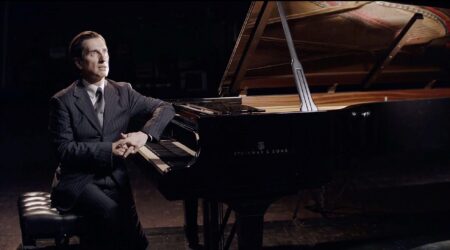In Trouble With Troubling Books
The first time my mother received a phone call home from one of my teachers was when, at five years old, I hit a classmate over the head with my metal Aladdin pencil case. Later, at home, laughably tiny in the green skirt of my school uniform, staring at her wide-eyed from between the strands […]
 The first time my mother received a phone call home from one of my teachers was when, at five years old, I hit a classmate over the head with my metal Aladdin pencil case. Later, at home, laughably tiny in the green skirt of my school uniform, staring at her wide-eyed from between the strands of my unevenly sheared bangs, I emphatically reasoned, “But he tried to steal my pencil!” and held it up for her to see, pointing at the label she had placed on it herself with my name printed in bold.
The first time my mother received a phone call home from one of my teachers was when, at five years old, I hit a classmate over the head with my metal Aladdin pencil case. Later, at home, laughably tiny in the green skirt of my school uniform, staring at her wide-eyed from between the strands of my unevenly sheared bangs, I emphatically reasoned, “But he tried to steal my pencil!” and held it up for her to see, pointing at the label she had placed on it herself with my name printed in bold.
One of the last times occurred a few years later, a twelve-year-old pink-haired, black fingernailed, heavy eyelinered me being chewed out not for random acts of (vigilant) violence, but for reading. (Irony, how fond I am of you.) Or, rather, for what I was reading.
“We just wanted to make sure you’re aware that over the last week your daughter has checked out books by Sylvia Plath,” the school librarian began, probably uneasily. “And then Lolita. These aren’t on the required reading list for her grade…and I wouldn’t consider them age appropriate.”
But the straw that finally broke the camel’s back and forced my favorite, meek, mousey librarian to betray me with a single phone call? A book she spotted me reading earlier in the day, sitting in the hallway in front of my locker – a book called We All Fall Down by one Mr. Robert Cormier.
Slim and unassuming in all its 199-page glory, Cormier’s young adult novel arouses little suspicion – that is, until one realizes it’s a book once famously banned, and is still listed as one of the most challenged books in the country. I picked it up for this reason, having stealthily acquired a list of banned books via shrewd internet research after realizing that my two aforementioned equally incriminating reads were banned as well. I wanted to continue the pattern, to proverbially throw up a certain finger to the self-appointed literary overlords who deemed themselves qualified to dictate what I should and shouldn’t read. Regardless of whether or not I had a useless James Dean-type rebellious bravado (which I totally did, not going to lie), I had the right intentions: to make all choices, especially regarding the written word I consumed, mine.
We All Fall Down is controversial for its alcohol abusing characters, for the brash, harsh language, for the disturbingly violent climactic twist, and, mostly, for its premise of a group of teenage boys trashing a house out of sheer boredom and assaulting a teenage girl in the process, an event that inadvertently leads to a doomed romance in one case, and a reason for misguided, dangerous vengeance in another. We meet Buddy Walker, a remarkably astute, self-aware teen with parents on the brink of a divorce who suddenly finds ill-suited camaraderie in a group of young, wealthy, causeless rebels, and relief at the bottom of a bottle of gin, and whose trashing of a random suburban house plants him directly in the path of Jane Jerome, a relatively normal young girl who after a single night and a single random event finds her younger sister in a coma and herself an alien in her home and in her own skin. In the midst of all this, is a single witness to the trashing, whose intention to avenge the house and the people in it seems well-intentioned at first, until dormant obsessions and latent psychoses rise slowly to the surface. That it’s a “dark” book is an understatement. These characters are complicated, each completely unable to occupy a black-and-white distinction between good or evil, but perfectly straddling the gray area in between, where all “truths,” and all things “knowable,” are subjective and a matter of perception. It’s relatively easy to understand why adults would be weary of this book. But what fascinated me, and what continues to make the book a stand-out in my mind after all the years that have passed since my initial read, is Cormier’s bravery in approaching subjects that would make any other writer of young adult literature hesitate and squirm – not to mention his skill in garnering empathy, if not some form of redemption, for every character. What I appreciated most at twelve-years-old, having just passed the stage where it was easy to believe in happy endings, was that for the very first time, I felt I had read the truth.
There is a real harshness, a real frankness to life, I knew that even then – and I know it even better now. My best friends were long-haired boys who snuck in and out of abandoned hospitals wielding bongs and dirty magazines; my extracurricular activities included lying reclined in their older brothers’ cars, turning radio dials with my toes and waiting to hear some kind of meaning. I knew Cormier’s characters, knew their habits, knew their alienation – I saw them in myself and in my friends like I had never seen real human disturbance in any character in literature before. Of course, there’s a real lightness to life, too. But have you ever noticed that no one ever hides the happy things from you? We’re always already prepared for all the good things that can happen; so prepared, in fact, that we’re expectant of them all, hands tucked under our thighs, eyes constantly swiveling, constantly scanning for the next seemingly inevitable “good thing.” And there’s nothing wrong with that, necessarily – except that it means we’re that much more lacking in personal resources when the Saints of Crap come (as they often do) marching in. What Cormier did was take the rose-tinted glasses off. Maybe he did it earlier than most would have, and maybe more swiftly – but I, for one, was glad to have been exposed to the rough edges, not only for the sake of preparation, but also for the sake of better appreciating the pieces of my life that weren’t quite so jagged.
The fact of the matter is, sooner or later, every child loses that beautiful naiveté, that certain innocence that Romantics harken back to and idealize the more it eludes us. Better lose it through secondary experience, by way of a book, than through first-hand experience, bottle in hand and stoney-eyed.
By Jayne Wilson
Jayne Wilson writes fiction about the likes of decapitated gnomes, compulsive hoarders, and sardonic old men. She laughs pathetically at her own jokes and is generally an impish mess. She graduated from the University of California, Davis in 2010 with a degree in English-Creative Writing.





